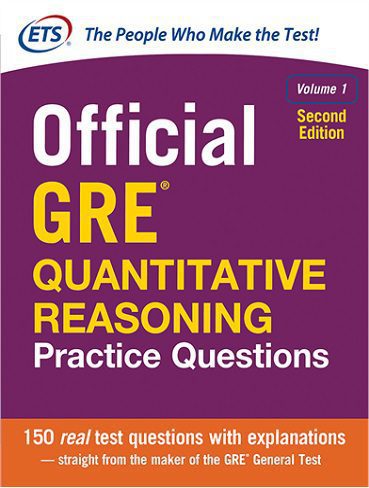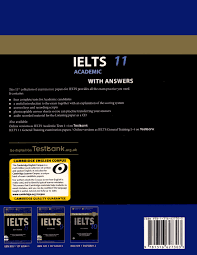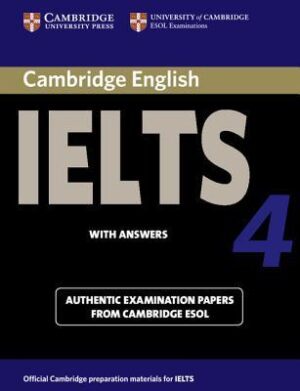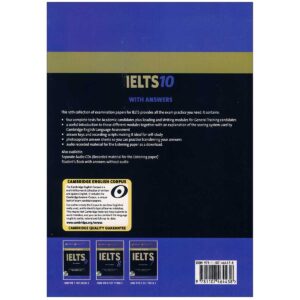توضیحات
کتاب Offical GRE Quantitative
The Quantitative Reasoning measure of the GRE® General Test assesses your:
basic mathematical skills *
understanding of elementary mathematical concepts *
ability to reason quantitatively and to model and solve problems with quantitative methods *
Some of the Quantitative Reasoning questions are posed in real-life settings, while others are posed in purely mathematical settings. Many of the questions are “word problems,” which must be translated and modeled mathematically. The skills, concepts and abilities are assessed in the four content areas below.
Arithmetic topics include properties and types of integers, such as divisibility, factorization, prime numbers, remainders and odd and even integers; arithmetic operations, exponents and roots; and concepts such as estimation, percent, ratio, rate, absolute value, the number line, decimal representation and sequences of numbers.
Algebra topics include operations with exponents; factoring and simplifying algebraic expressions; relations, functions, equations and inequalities; solving linear and quadratic equations and inequalities; solving simultaneous equations and inequalities; setting up equations to solve word problems; and coordinate geometry, including graphs of functions, equations and inequalities, intercepts and slopes of lines.
Geometry topics include parallel and perpendicular lines, circles, triangles — including isosceles, equilateral and 30°-60°-90° triangles — quadrilaterals, other polygons, congruent and similar figures, three-dimensional figures, area, perimeter, volume, the Pythagorean theorem and angle measurement in degrees. The ability to construct proofs is not tested.
Data analysis topics include basic descriptive statistics, such as mean, median, mode, range, standard deviation, interquartile range, quartiles and percentiles; interpretation of data in tables and graphs, such as line graphs, bar graphs, circle graphs, boxplots, scatterplots and frequency distributions; elementary probability, such as probabilities of compound events and independent events; conditional probability; random variables and probability distributions, including normal distributions; and counting methods, such as combinations, permutations and Venn diagrams. These topics are typically taught in high school algebra courses or introductory statistics courses. Inferential statistics is not tested.
The content in these areas includes high school mathematics and statistics at a level that is generally no higher than a second course in algebra; it does not include trigonometry, calculus or other higher-level mathematics. The Math Review (PDF) provides detailed information about the content of the Quantitative Reasoning measure.
The mathematical symbols, terminology and conventions used in the Quantitative Reasoning measure are those that are standard at the high school level. For example, the positive direction of a number line is to the right, distances are nonnegative and prime numbers are greater than 1. Whenever nonstandard notation is used in a question, it is explicitly introduced in the question.
In addition to conventions, there are some important assumptions about numbers and figures that are listed in the Quantitative Reasoning section directions
All numbers used are real numbers.
All figures are assumed to lie in a plane unless otherwise indicated.
Geometric figures, such as lines, circles, triangles, and quadrilaterals, are not necessarily drawn to scale. That is, you should not assume that quantities such as lengths and angle measures are as they appear in a figure. You should assume, however, that lines shown as straight are actually straight, points on a line are in the order shown, and more generally, all geometric objects are in the relative positions shown. For questions with geometric figures, you should base your answers on geometric reasoning, not on estimating or comparing quantities by sight or by measurement.
Coordinate systems, such as xy-planes and number lines, are drawn to scale; therefore, you can read, estimate, or compare quantities in such figures by sight or by measurement.
Graphical data presentations, such as bar graphs, circle graphs, and line graphs, are drawn to scale; therefore, you can read, estimate, or compare data values by sight or by measurement.
More about conventions and assumptions appears in Mathematical Conventions (PDF).
کتاب Offical GRE Quantitative
Quantitative Reasoning Question Types
The Quantitative Reasoning measure has four types of questions. Click on the links below to get a closer look at each, including sample questions with explanations.
Quantitative Comparison Questions
Multiple-choice Questions — Select One Answer Choice
Multiple-choice Questions — Select One or More Answer Choices
Numeric Entry Questions
Each question appears either independently as a discrete question or as part of a set of questions called a Data Interpretation set. All of the questions in a Data Interpretation set are based on the same data presented in tables, graphs or other displays of data.
You can find steps for solving quantitative problems, including useful strategies for answering questions on the Quantitative Reasoning measure, in Problem-solving Steps. In addition, the pages for each of the four Quantitative Reasoning question types and the Data Interpretation set page, mentioned above, contain strategies specific to answering those types of questions.
You are allowed to use a basic calculator on the Quantitative Reasoning measure. For the computer-delivered test, the calculator is provided on-screen. For the paper-delivered test, a handheld calculator is provided at the test center. Read more about using the calculator.
توضیحات تکمیلی
| نویسنده | Educational Testing Service |
|---|---|
| مختص آزمون | GRE |
| لهجه | american |
| شابک/ISBN | 9780071834322 |
| قطع | رحلی |
| تعداد صفحات | 352 |
.فقط مشتریانی که این محصول را خریداری کرده اند و وارد سیستم شده اند میتوانند برای این محصول دیدگاه ارسال کنند.









دیدگاهها
هیچ دیدگاهی برای این محصول نوشته نشده است.